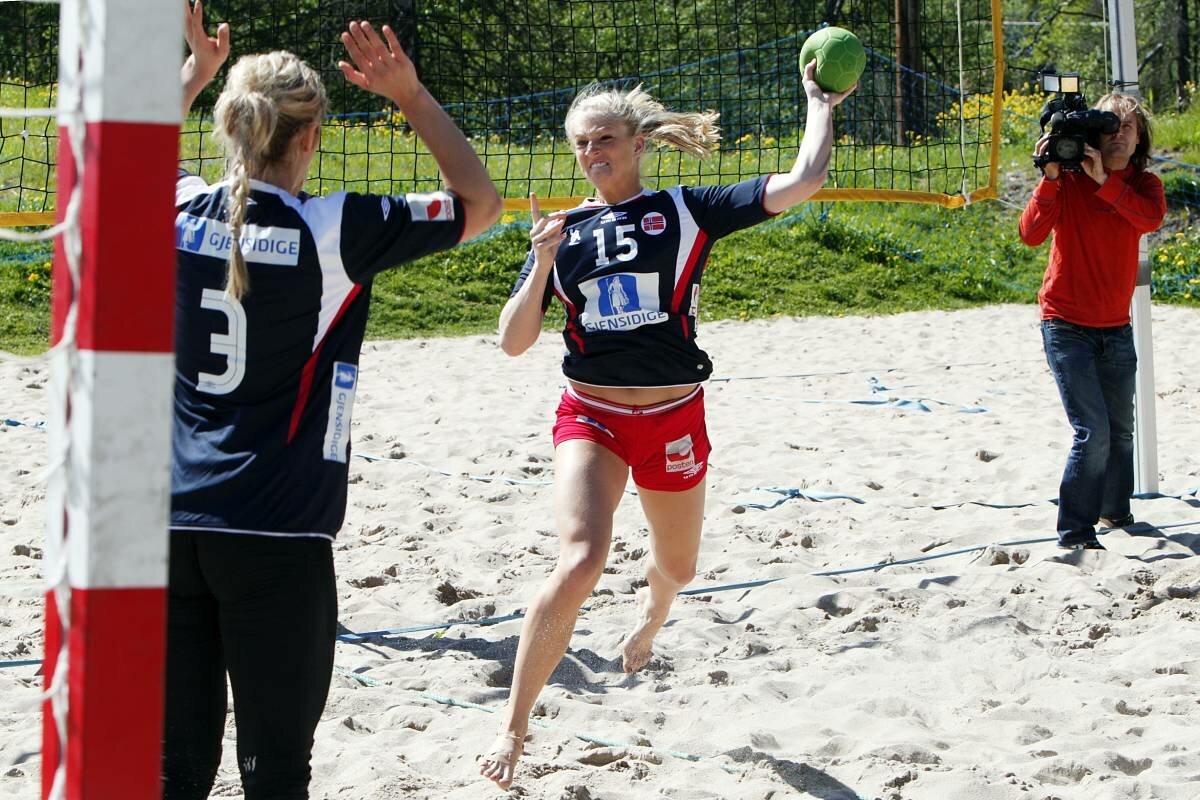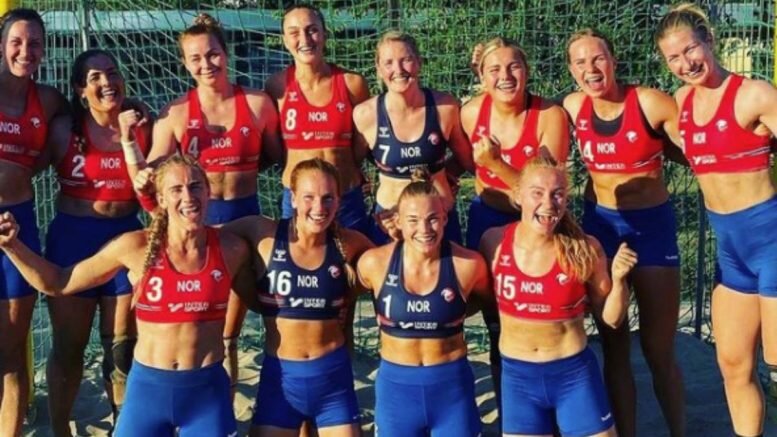This week the International Handball Federation (IHF) caved in to months of public pressure, from countries, governments, and even celebrities, to change its uniform rules for the women’s game. It was the Norwegian Women’s National Team whose protest against the wearing of bikini bottoms sparked a whole debate about sexism and the sexualization of women’s sport. Quietly changing the rules this week, the IHF appears to have been dragged into the 21st century.
Bikini-gate: Fined for wearing shorts
When the Norwegian women’s handball team took to the sandy playing fields during the recent European Beach Handball Championships something was, according to the IHF, not right. Competing for the bronze medal, the Norwegian women decided to wear shorts (similar to the ones that male players can wear) to protest against both the sexualization and uncomfortability of having to wear bikini bottoms. This was against IHF uniform rules and landed the team a EUR 1500 fine.
The Norwegian women, and team officials, were unified in making a stand against what they saw as a sexist uniform policy. Only the women had to wear scantily clad bikini bottoms whilst the men could wear relatively loose-fitting shorts as part of their uniform.
The fine was labeled as “completely ridiculous” by the Minister for Culture and Sports, Abid Raja (H). More government pressure came when the Sports Minister of 5 Nordic countries (Denmark, Norway, Sweden, Finland, and Iceland) wrote to the IHF to change the rules to “support and encourage all athletes regardless of their gender to remain in the sport…” There was even a slice of Hollywood thrown into the mix when US popstar Pink said that she would personally pay the team’s fine.
IHF finally changes rules, drags sport into 21st century
It now appears that without much widespread publicity or knowledge, the IHF has caved in to the intense public pressure and changed its uniform rules for women. The new rules state that now female athletes must wear “short tight pants with a close fit.”
This is a step in the right direction, to be sure, as these shorts are surely more comfortable and modest than the skimpy bikini bottoms that female athletes were forced to wear before. Yet there is still a smack of sexism in the rules as women have to wear “tight” shorts whilst the men can still wear relatively loose-fitting ones.
The rule change, aside from the various governmental pressure worldwide, was also sparked by activist Talitha Stone. Creating a petition, with the help of gender equality organization Collective Shout, she managed to compile 61,000 signatures to change the sexist uniform rules.

A minor victory but the battle continues
The uniform rule change (i.e., the U-turn after an intense media scrutiny) should be celebrated as a small victory yet there is still much work to do to root out both the structural sexism in and sexualization of, women’s sport.
One only has to remember a few years ago when Sepp Blatter, the then head of one of the largest organizations in the world, FIFA, which manages football around the globe, said that women’s football could be more appealing if they wore tighter shorts. This is the kind of prehistoric mindsight that governs most major sports worldwide.
In an era where racial equality is being loudly (and rightly) pursued and promoted, there is also a need to safeguard gender equality. The past half-century or so has seen many women around the world emerge from the darkness of gender oppression. The fight for gender equality is exactly that – an ongoing struggle every day against sexism and complacent.
Can the sexism in and sexualization of women’s sport change?
Now that big money is being pumped into women’s sport worldwide – look how popular the women’s football world cup has become or the women’s professional basketball league in the United States – not to mention any of Norway’s world-beating female skiers or how popular the women’s national football team is – organizations and businesses should use financial pressure to help promote gender equality and stamp out sexism in sport.
It appears that the leaders in charge of the IHF have reluctantly changed the rules for female uniforms. The question remains whether the inherent sexist attitudes so prevalent in women’s sport and the overt sexualization underpinning much of female professional sport will also change.
Source: #Norway Today / #NorwayTodayNews
Do you have a news tip for Norway Today? We want to hear it. Get in touch at [email protected]






Be the first to comment on "Bikini-gate: Handball federation drops sexist uniform policy"